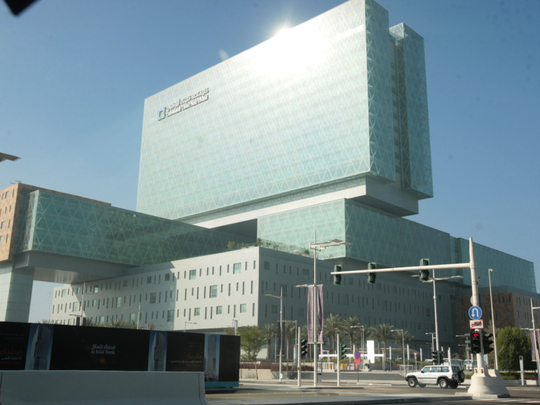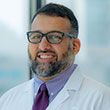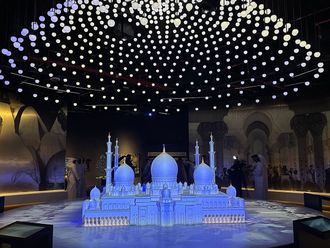
Abu Dhabi: A 15-year-old Emirati has successfully had a rare type of tumour in his abdominal cavity removed, allowing him to return to a normal life.
Mubarak Almenhali had been suffering from a paraganglioma, a rare type of tumour that arises from the peripheral nervous system responsible for controlling bodily functions like blood pressure, heart rate and intestinal movement. The eight-centimetre tumour had been located behind his stomach and close to the pancreas, and had certain characteristics of an aggressive growth.
“Almenhali had already been to several hospitals in the UAE and India, but because of the complexity of the tumour that was next to the aorta, the main artery that carries blood to the rest of the body, they were unable to find the right treatment that would alleviate his symptoms and save his life,” said Dr. Yasir Akmal, consultant surgical oncologist at the Cleveland Clinic Abu Dhabi’s (CCAD) Digestive Disease Institute.
“The tumour arises from the nerve cells around the body or the adrenal glands and tends to secrete hormones like adrenalin, which causes the fight or flight response, anger, high blood pressure and stress. Since these are uncontrolled bursts of adrenalin, it can lead to a stroke and heart attacks if untreated. Such an extensive tumour is very rare even in adults and Almenhali’s was one of the most complex resections that we have done for this type of tumour,” Dr Akmal said.
Approximately two out of every one million people suffer from paragangliomas each year. These tumours cause symptoms including high blood pressure, excessive sweating, emotional outbursts, headaches and stomach aches on patients. They mostly affect people between the ages of 30 and 50 years, and can be non-hereditary.
Almenhali’s case required a complex surgical procedure, and the CCAD took a multidisciplinary approach. Dr Akmal explained that the tumour had blocked off the main blood vessels coming from the aorta that supply the liver and small intestine. At the same time, Almenhali’s body had compensated by forming large collateral blood vessels and different routes to supply blood to these organs. If this had not happened, his liver and intestine would have already failed.
The CCAD surgical team therefore had to be very careful during the resection to preserve these new channels, and even had to reconstruct one that was supplying blood to his liver during the surgery. After the six-hour surgery, his progress was monitored in the intensive care unit to make sure the additional blood channels were functional. “The connection that we had created for his liver was working well but he had lost blood flow to the gall bladder. So, we had to remove that and a small part of his pancreas. He was given antibiotics and supportive care to assist his recovery,” Dr Akmal explained.
Following the procedure, Almenhali received radiation to reduce the risk of recurrence in the same area. According to his doctors, he can now look forward to returning to school. “I was told by so many hospitals that my surgery was not possible. But at CCAD, they took care of me and took my pain away. I am excited to go to school and play with my friends and hang out after classes. I feel like my health is improving every day. My friends are [also] waiting to see me. I share my progress with them on WhatsApp and hope to join them soon,” the 15-year-old said.
“We can’t thank the Cleveland Clinic Abu Dhabi doctors and nurses enough. I want to take a picture with all of them and tell the world that these great people helped my son live pain-free,” said Ahmed Almenhali, the boy’s grateful father.










